Category: Features
-
Sunday Morning Session
President Dieter F. Uchtdorf conducting. President Henry B. Eyring: To My Grandchildren I have seen those same tears of happiness in the eyes of someone who recounted the words of an apostle of God: He had said to her, after a searching and tender interview: “I forgive you in the name of the Lord. He…
-
Priesthood Session
President Henry B. Eyring conducting. Elder L. Tom Perry: The Doctrines and Principles Contained in the Articles of Faith This doctrine is to the Church like a battery is to a cell phone. When you remove the battery from your cell phone it becomes useless. A church in which true doctrine is no longer taught is…
-
Saturday Afternoon Session
President Uchtdorf conducting. President Henry B. Eyring: Sustaining votes of the General Authorities and Church Officers
-
Saturday Morning Session
President Eyring conducted this opening session. President Thomas S. Monson: Welcome to Conference I am happy to announce that two weeks ago the membership of the Church reached fifteen million. It has scarcely been one year since I announced the lowering of the age of missionary service. Since that time, the number of full-time missionaries…
-
Literary Lorenzo Snow #19: To Elder L. Snow
Lorenzo Snow lesson 19 highlights several purposes for missionary work in its collected statements from Snow’s discourses. Clearly bringing the gospel to others is the chief purpose of this effort. Snow also suggests in these statements that missionary work is a sacrifice that missionaries make when they are sent out into the world. Perhaps the…
-
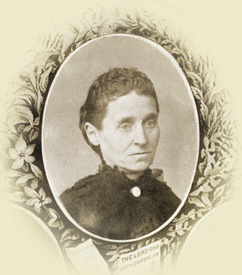
Literary DCGD #38: Song of the Sisters of the Relief Society
Often when we discuss the principles of welfare today, we talk as if the whole idea of welfare developed in the 1930s, along with the current program. In reality, before the current program caring for the needy, poor and promoting self-reliance were largely the purview of the Relief Society. And so it is a Song…
-
Literary DCGD #37: Lines suggested by reflections on Joseph Smith
In Mormonism our definition for the term Prophet is usually more specific than that employed outside of the Church. To us, a prophet is not only someone who has been inspired to prophesy, but it is also the president of the Church, the leader called to preside over the membership, the person who is to…
-

Just because you heard it at church, doesn’t make it true.
Or mean that you must repeat it. Because sometimes people say things in church are are just plain not true.
-
Literary DCGD #36: Past, Present, Future
The place of Utah in LDS history is occasionally a topic of lessons like Doctrine and Covenants Gospel Doctrine lesson 36. And while today not all church members live in Utah or want to live there or feel that it is a place to admire, still, it is hard to argue with the fact that…
-
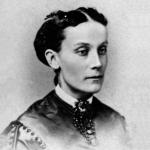
Literary Lorenzo Snow #18: Brigham Young
The world today treats leaders with honor and deference, giving those who manage to become leader of government and society the benefits available to the rich, while shielding them from many of the cares of life, and, at times, from their own errors and sins. Lesson 18 in the Lorenzo Snow manual makes it clear…
-
Literary DCGD #35: Wakeful Winter Nights
In recent years the attention on the tragedy of the Martin and Willie handcart companies seems to have increased. Their situation and rescue has been the subject of books and movies (and lessons) in a process that seems to mythologize the events. The current lesson (#35 in the Doctrine and Covenants Gospel Doctrine manual) explores…
-
Literary DCGD #34: Farewell to my Mother
When we discuss the Mormon trek, the focus is almost always on the physical suffering that many of the immigrants endured while traveling west. While certainly the physical struggle to cross the plains (covered in Doctrine and Covenants Lesson 34) was difficult, the pioneers suffered in other ways also. For example, many left family behind,…
-
Literary Lorenzo Snow #17: The Power of Song
Many of our hymns have a martial air to them, often echoed in their messages. We are called “Christian Soldiers,” marching on to war, and we call to the “Elders of Israel” to join the campaign. And often the Priesthood is called “God’s Army” in an attempt to emphasize, I suppose, its size and power…
-
Literary DCGD #33: To President Brigham Young
We often make assumptions about the past based on our perspective today, and the current Gospel Doctrine lesson about Brigham Young and succession in the presidency is no exception. We know that the senior member of the Quorum of the Twelve becomes the new Prophet, and it is easy to assume that this was always…
-
Literary DCGD #32: Lines on the Assassination
[I’m sorry for the delay in getting this posted. I’ve been traveling a lot the past week.] The martyrdom of Joseph Smith was a shock to his people and one that, as their successors, we still remember and still feel. But in the days following his assassination, the reaction of Church members was one of…
-
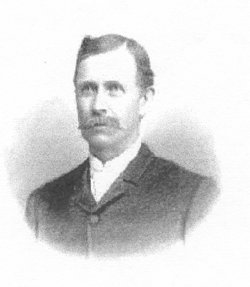
Literary Lorenzo Snow #16: The United Uplift of the Hand
When we speak of unity it is often difficult to understand exactly what we need to do to achieve it. The teachings of Lorenzo Snow in the current Priesthood/Relief Society lesson manual (lesson 16) try to address this, but I’m not quite sure that they give the specifics needed. Should we be united politically? What…
-
Literary DCGD #31: The Lord of Hosts has Spoken
The doctrine of eternal marriage, discussed in D&C Gospel Doctrine lesson 31, is clearly tied to the priesthood (the authority by which such marriages are performed) and to salvation, for salvation in the eternal kingdom is dependent on sealing, both to parents, to spouse and to children. The following poems addresses the role of sealing…
-
Guest Post: The Parable of the Two Sons
My friend and neighbor has written a beautiful parable that I am pleased to share with you today. David Harding works actively in his ward and neighborhood. His daughter is my daughter’s best friend. As those of you with children know, it is a great blessing to have your offspring fall in with good people…
-
Literary DCGD #30: Dedication Hymn
Our doctrine of performing ordinances on behalf of the dead is unusual among the religions of the world. Many religions pray for the dead, Mormonism actively performs the same saving ordinances that the living must have. These teachings were introduced during the Nauvoo period, and baptisms for the dead were performed in the Mississippi at…
-
Literary Lorenzo Snow #15: Our Missionaries
For many members of the Church the most intense period of “faithful, energetic service in the Kingdom of God” during our lives is our missionary service. So it is no surprise that many of the ideas expressed in the Teachings of the Presidents of the Church: Lorenzo Snow lesson #15 are characteristics that we associate…
-
Literary DCGD #29: Farewell to Nauvoo
I’ve long thought that Nauvoo was a kind of Mormon Camelot, a shining, hopeful city built on consistent, righteous principles that fell apart amid internal dissension. While I wouldn’t push the analogy too far, I think it kind of works on the surface, especially given the standard portrayal of Nauvoo in lessons like Doctrine and…
-
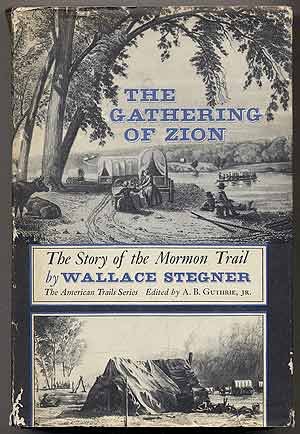
Not quite “Faith in Every Footstep”
It’s no surprise that my favorite book about the pioneers was not written by a Mormon.
-
Literary DCGD #28: A Prayer
Despair is, I think, one of the most difficult parts of the human condition. While the sources of our despair today are very different from those suffered by the early saints, the feelings are just as real and difficult. Where do we turn for peace? The following poem explores the despair we all feel—the same…
-
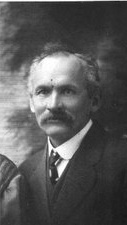
Literary Lorenzo Snow #14: Be Thou My Strength
What do we mean when we talk about help from God? Our religion, and lesson 14 in the Lorenzo Snow manual, teaches us that we should rely on God for the help. Yet when we think about how this help actually works, it isn’t about God doing things for us, at least not usually, its…
-
Literary DCGD #27: Charity and True Patriotism
We often assume in our perception of trials and challenges that the trials aren’t our fault, that these challenges are something that happens to us instead of something that happens as a result of our choices. While it is certainly true that some trials—natural disasters for example—are not by our choice, others are at least…
-
Literary Lorenzo Snow #13: Oh! The Daughters of Zion
What is the purpose of the Relief Society? While we think we understand its purpose based on what the women’s organization does today, the things that Relief Society does have changed radically since its founding in 1842. And the Lorenzo Snow lesson on the Relief Society shows this change, since his comments reflect a focus…
-
Literary DCGD #26: To Elder W. Woodruff
Our understanding of missionary work has changed and evolved substantially over Mormon history. Where we know assume that missionaries are young, during the 19th century missionaries were more mature and married. Where the sacrifices of missionaries today are usually parts of life postponed, during the life of Joseph Smith they meant real hardship for families,…
-
Literary DCGD #25: Awake! Ye Royal Sons!
What should the priesthood mean to us? How should it influence who we are and how we act? These questions are part of nearly every Mormon lesson on the priesthood these days, and lesson 25 of the Doctrine and Covenants Gospel Doctrine manual is no exception. And I think the following poem fits this basic…
-
Literary DCGD #24: Prejudice
I frequently hear claims that many church members are leaving the Church, that those who have been raised in the Church, or who have converted have become disillusioned. For a variety of reasons members do leave the Church, and it may be that they are leaving faster now than they did 50 years ago; although…

